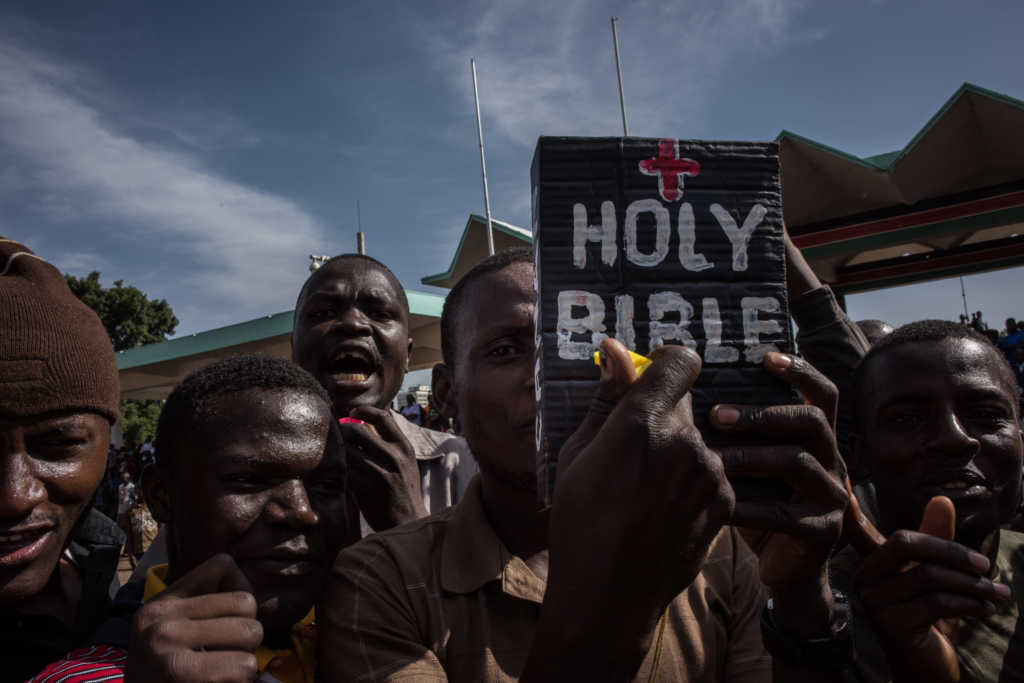An anti-corruption organization in the African nation of Kenya is attempting to fix an endemic issue that is draining the country of much-needed funds by employing an unconventional tool — namely, the Bible. Kenya has been plunged into a spiral of debt, much of which is as a result of extortionate levels of corruption and bribe-taking among top government officials.
Radical Muslims Threaten Judges With Death as Pakistan Awaits Final Asia Bibi Ruling
In August, the head of the agency that manages public land and the top boss of the state railway were both detained on suspicion of corruption with regards to land allocation for the enormous new $3 billion flagship Nairobi-Mombasa railway. According to the BBC, some residential areas are being disconnected from the main water supply by criminal cartels with strong government links. The perceived water shortage is then pounced on by the cartels, who drive water trucks around the affected areas in order to meet their needs — for a price, of course.
That’s where Christian-centric Ethics and Anti-Corruption Commission (EACC) comes in, and the organization certainly has a task on its hands. A recently commissioned survey showed that the percentage of those who pay bribes to government officials in order to receive government services has jumped from 46 percent to 62 percent.
Shockingly, while officials are open to taking bribes for an expedited delivery of public services, one of the most bribed sectors is in health care, and specifically regarding the request for birth certificates.
BBC reporter Joseph Warungu describes the problem:
“As a mother, although you may have carried a pregnancy for nine months and then given birth to a baby, the pain is not over. You might find it hard to prove officially that you gave birth to a Kenyan until you give birth to another child — called cash.
But as a Kenyan, if you want to figure out why it is you are being starved of basic public services, you’ll likely have a tough time of it.
“So you have nothing to drink at home because your water supply has been illegally disconnected,” Warungu writes. “You cannot be reconnected because the people behind your headache are well connected to the powers that be. The police will also be unlikely to help you unless you give them ‘something to eat.’ You’re thirsty, they’re hungry and the nation is tired.”
The EACC, however, is determined to stamp out corruption and rid potential whistle-blowers of any apprehension using a timeless and soul-piercing tool — the Bible. The commission itself is actually led by retired Anglican Archbishop Eliud Wabukala — a man very well-versed in the sacred Scriptures. Under the guidance of Wabukala, the EACC has launched an anti-corruption Bible Study Guide which it hopes will spark a significant change among the extremely religious population.
According to the World Factbook published by the CIA, approximately 83 percent of the Kenyan population would identify as being of the Christian faith.
The EACC hopes that its Biblical program will help the public “interact with the Bible and discover God’s position on corruption and his direction on living a corruption-free life.”
According to Kenyan news outlet The Star, the new guide is titled “Integrity: A Weapon Against Corruption,” and has been launched in conjunction with the Inter-Religious Sector.
The commission believes that through a biblical approach, and with the commitment of all participants, corruption can be rooted out for the good of all Kenyans.
“Regardless of your status in the society, you can make a difference,” it noted upon the guide’s release. “The Guide inspires us to act and to believe our country can be free from corruption.”
“The fight against corruption can be won but everyone must commit to live a life that enhances the virtues of integrity, justice, patriotism and love for one another,” the commission stated.



